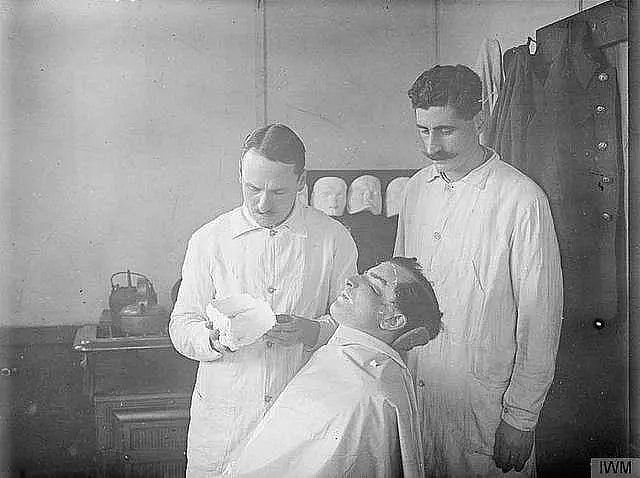Do you need Oral Surgeon or a maxillofacial surgeon?
[trp_language language=”en_US”]
Your tooth has been bothering you for weeks. Now the pain has become unbearable. Maybe your jaw has been sore lately. Or you lost a tooth recently, Is a trip to the dentist enough? What if you need to see an oral and maxillofacial surgeon? How do you know?
Talk to Your Dentist First
If you have problems with your teeth, gums, or jaws, go see your dentist, even if the pain is in the area around your mouth or face.
If it’s an emergency and a dentist isn’t available, head to an urgent care clinic rather than the ER. It’s best, though, to try to avoid both if possible. They will only administer medication for the symptoms and tell you to see a dentist. They may also charge three to four times what it may cost to solve the problem. Your dentist can handle most oral problems. If they think you need an oral surgeon, they’ll recommend one.
The Oral and Maxillofacial Surgeon
If your dentist recommends maxillofacial surgery, they are talking about a specialty of dentistry that relates to your face and jaws. It’s surgery that treats disease and injuries of the areas around your mouth.
Oral and maxillofacial surgeons have extra training and education beyond what’s expected for a dentist. Some get a medical degree (an MD) along with their oral surgery diplomas. They put in at least 4 years of training in a hospital-based surgical program alongside medical residents in many different specialties, including anesthesia. That includes various types of IV sedation, including “twilight sleep” and general anesthesia, where you’re unconscious and can’t feel any pain. It can also include local anesthesia, where only a small area of your body is numbed for your procedure.
An oral surgeon can help you out of several situations.
Impacted teeth. This mostly happens with wisdom teeth, also called third molars. But it can happen in other places in your mouth, too.
Sometimes these teeth emerge from the gum line and the jaw is large enough to allow room for them, but most of the time, this is not the case. When the teeth come through the gums for the first time, it might be crowded, so they either don’t come out at all or don’t come out completely. This can cause sore gums and infections of the gum tissue surrounding the wisdom teeth. In addition, impacted wisdom teeth can cause permanent damage to nearby teeth, gums, and bone and can sometimes lead to the formation of cysts or tumors that can destroy sections of the jaw.
Your dentist or surgeon might recommend you get your wisdom teeth pulled before they present any problems. But it’s not just wisdom teeth that sometimes become impacted and need to be removed. Other teeth, such as the cuspids and the bicuspids, can become impacted and can cause the same types of problems.
Jaw-joint issues. The temporomandibular joint (TMJ) connects your jaw to your skull. It’s that little “hinge” right in front of the ears. It can cause problems like pain in your jaw, jaw-popping, stiffness, and headaches. Most people with TMJ disorders can be successfully treated with a combination of oral medications, physical therapy, and splints. But joint surgery is an option for advanced cases and when the diagnosis indicates a specific problem in the joint.
Oral devices, pain medication, and ice packs can help. But people with recurring problems may need oral surgery.
Overbite/underbite. If your jaw or teeth aren’t aligned properly, your dentist may recommend orthognathic surgery. It’s an option for people with excessive overbites or underbites, trouble chewing or swallowing certain birth defects, or sleep apnea. In some people, the upper and lower jaws fail to grow properly. This can cause difficulty in speaking, eating, swallowing, and breathing. While some of these problems — like improper teeth alignment — can be corrected with braces and other orthodontic appliances, more serious problems require oral surgery to move all or part of the upper jaw, lower jaw, or both, into a new position that is more balanced, functional, and healthy. Find more information on teeth straightening surgery with extreme overbites and underbites.
Often, an orthodontist can correct your teeth if they don’t line up. But if it’s caused by your jaw, some time with an oral surgeon might be necessary. Learn more about ways to straighten teeth without braces.
Implants. You can replace a missing tooth with a dental implant. The surgeon embeds a titanium implant into your jaw, then your dentist attaches a crown. Dental implants are an option for tooth loss due to an accident or infection or as an alternative to bridges and dentures. Suitable candidates for dental implants need to have an adequate bone level and density, must not be prone to infection and must be willing to maintain good oral hygiene practices.
Improve fit of dentures. For first-time denture wearers, oral surgery can be done to correct any irregularities of the jaws before creating the dentures to ensure a better fit. Oral surgery can also help long-term denture wearers. Supporting bone often deteriorates over time, resulting in dentures that no longer fit properly. In severe cases, an oral surgeon can add a bone graft to areas where little bone remains.
Sleep and breathing issues. This covers things like snoring and sleep apnea, a condition that causes you to stop breathing for brief periods during sleep. A doctor with special training may recommend a CPAP machine or other appliance that can open your airway. They may also want you to have surgery, and you’d go to an oral surgeon.
The type of surgery you’d have would depend on what’s blocking your breathing. It could be that your airway just needs to be made bigger or it could mean that a specific part of your mouth or nasal passages needs to be adjusted. Surgical procedures involve removing the soft tissues of the oropharynx (an area in the back portion of the mouth) or the lower jaw. Laser surgery is a newer treatment option.
You could have a procedure in a doctor’s office and go home the same day. If the surgery you need is a bit more involved, you may have to spend a few days in the hospital and maybe have your jaw wired shut.
Cancer treatment. Oral surgeons also treat cancers, not just of the mouth, but also of the head and neck, like of the salivary glands, sinuses, throat, larynx, and lips.
Oral surgeons can also help with:
If you have problems with your teeth or gums, talk with your dentist. They might be able to fix it. If not, an oral surgeon can give you the relief you’re searching for.
[/trp_language]
[trp_language language=”ar”] [wp_show_posts id=”3268″] [/trp_language]
[trp_language language=”fr_FR”] [wp_show_posts id=”3270″] [/trp_language]
## Do You Need an Oral Surgeon or a Maxillofacial Surgeon?
When faced with complex dental or facial issues, you may wonder whether an oral surgeon or a maxillofacial surgeon is the right specialist for you. While both professions specialize in surgical procedures, they differ in their scope of practice and expertise. This Q&A aims to clarify their roles and help you make an informed decision.
### What is an Oral Surgeon?
An oral surgeon is a dental specialist who focuses on the surgical management of the mouth, jaws, and surrounding tissues. They perform a wide range of procedures, including:
– Tooth extractions, including wisdom teeth
– Placement of dental implants
– Reshaping and contouring of gums
– Bone grafting and sinus augmentation
- Reconstructive jaw surgery after trauma or disease
### What is a Maxillofacial Surgeon?
A maxillofacial surgeon is a medical doctor who specializes in the diagnosis and treatment of conditions affecting the face, jaws, and head and neck region. They have advanced surgical training in addition to a medical degree and can perform complex procedures such as:
– Corrective jaw surgery for deformities or misalignment
– Reconstruction of facial bones after injury or trauma
– Treatment of temporomandibular joint (TMJ) disorders
– Removal of lesions or tumors in the head and neck area
– Facial cosmetic surgery, such as rhinoplasty and facelifts
### Which Specialist Should I Choose?
The type of specialist you need depends on the specific issue you are experiencing.
– **If your concerns primarily involve your teeth, gums, or jaw structure**, **an oral surgeon** is the most appropriate choice. They have expertise in dental surgery and procedures.
– **If your concerns extend beyond the oral cavity and involve the bones, tissues, or structures of the face**, **a maxillofacial surgeon** is better suited to assess and treat your condition. They have specialized training in facial surgery and reconstruction.
### Considerations For Choosing an Oral Surgeon or Maxillofacial Surgeon
When choosing a specialist, consider the following factors:
– **Credentials and experience**: Verify their educational background, board certifications, and years of practice in their field.
– **Specialization**: Ensure they have specific expertise in the area you require treatment for.
– **Patient reviews**: Read online testimonials or reviews from previous patients to gain insights into their experiences.
– **Referrals**: Seek recommendations from your dentist or other healthcare providers who know your medical history.
– **Comfort level**: Establish a rapport with the surgeon during the consultation to ensure you feel comfortable with their approach and communication style.
### Conclusion
Whether you need an oral surgeon or a maxillofacial surgeon depends on the specific nature of your condition. By understanding the differences between these professions and considering the factors mentioned above, you can make an informed decision and choose the most qualified specialist for your unique needs.








Do you need Oral Surgeon or a maxillofacial surgeon
#oralsurgeon #maxillofacialsurgeon